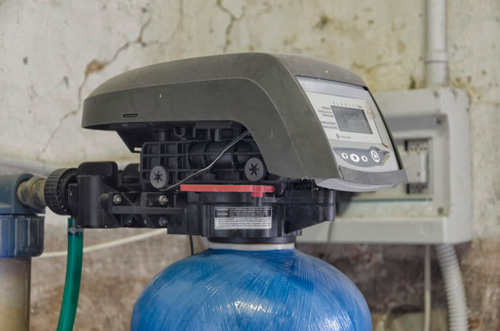Water is vital in our daily lives, flowing through our homes and quenching our thirst. However, not all water is created equal. If you’ve ever noticed stubborn stains on your dishes, scale buildup in your pipes, or your skin feeling a bit dry after a shower, you might be dealing with hard water.
Enter the unsung hero of many households—the water softener. In this blog, we’ll unravel the mysteries behind water softeners, exploring what they are and how they work to transform hard water into something more gentle on your home and your body.
Understanding Hard Water
Hard water is water that contains a high mineral content, primarily consisting of calcium and magnesium ions. These minerals are picked up by water as it percolates through deposits of limestone and chalk. The term “hard” refers to the difficulty it poses in creating lather with soap, as opposed to the more easily lathering “soft water.” The presence of these minerals in hard water can lead to various issues, such as the buildup of scale in pipes and appliances, reducing their efficiency over time. Additionally, hard water may leave deposits on dishes and glassware, making them appear cloudy. While hard water is generally safe for consumption, its impact on plumbing systems and the inconvenience it poses in cleaning have led many to invest in water softening systems to mitigate these effects.

How Does a Water Softener Work?
A water softener is a device designed to combat the negative effects of hard water. At its core, a water softener consists of a tank filled with resin beads and a brine tank.
1. Ion Exchange Process
The magic begins with a process called ion exchange. The resin beads in the water softener carry a negative charge. As hard water flows through the resin tank, the positively charged calcium and magnesium ions are attracted to the resin beads and swap places with the sodium ions on the beads. This exchange transforms the hard water into softened water, effectively removing the minerals responsible for limescale buildup.
2. Regeneration
Over time, the resin beads become saturated with calcium and magnesium ions, and the water softener needs to regenerate. During this process, a brine solution (a concentrated saltwater solution) from the brine tank is flushed through the resin tank. The high concentration of sodium in the brine displaces the accumulated calcium and magnesium ions on the resin beads, allowing them to be washed away as waste. The resin beads are then recharged with sodium ions, ready to tackle more hard water.
Benefits of Softened Water
So, why bother with a water softener? The advantages are numerous:
- Preserving Appliances: Soft water prevents limescale buildup in water-using appliances, prolonging their lifespan and maintaining their efficiency.
- Softer Skin and Hair: Bathing in softened water can leave your skin feeling smoother and your hair more manageable.
- Spotless Dishes and Fixtures: Say goodbye to those pesky water spots on your dishes and fixtures—softened water leaves them sparkling clean.
- Improved Efficiency: From washing machines to water heaters, appliances work more efficiently without the hindrance of limescale buildup.
Maintenance And Considerations
Water softeners require some maintenance to ensure they operate efficiently:
- Salt Refilling: For salt-based water softeners, you’ll need to periodically refill the brine tank with salt. The frequency depends on water hardness and usage.
- Regular Check-Ups: It’s advisable to have your water softener inspected and serviced by a professional periodically to ensure it’s functioning correctly.
- Choosing the Right Size: When selecting a water softener, consider factors like water hardness, household size, and water usage to ensure you choose the right size for your needs.
Banish Hard Water from Your Home with Atlantic Blue Water Services
Water softeners are essential for better water quality and protecting your home from the perils of hard water. Understand their operation and advantages to make a wise choice. With a water softener, you’ll enjoy softer water, extend appliance lifespans, and enhance your home’s efficiency and comfort.
For dependable water services, turn to Atlantic Blue Water Services. We’re dedicated to delivering clean water and offering advanced well water tests. Contact us today at 410-840-2583 for a healthier water supply, improving your well-being and overall satisfaction.
